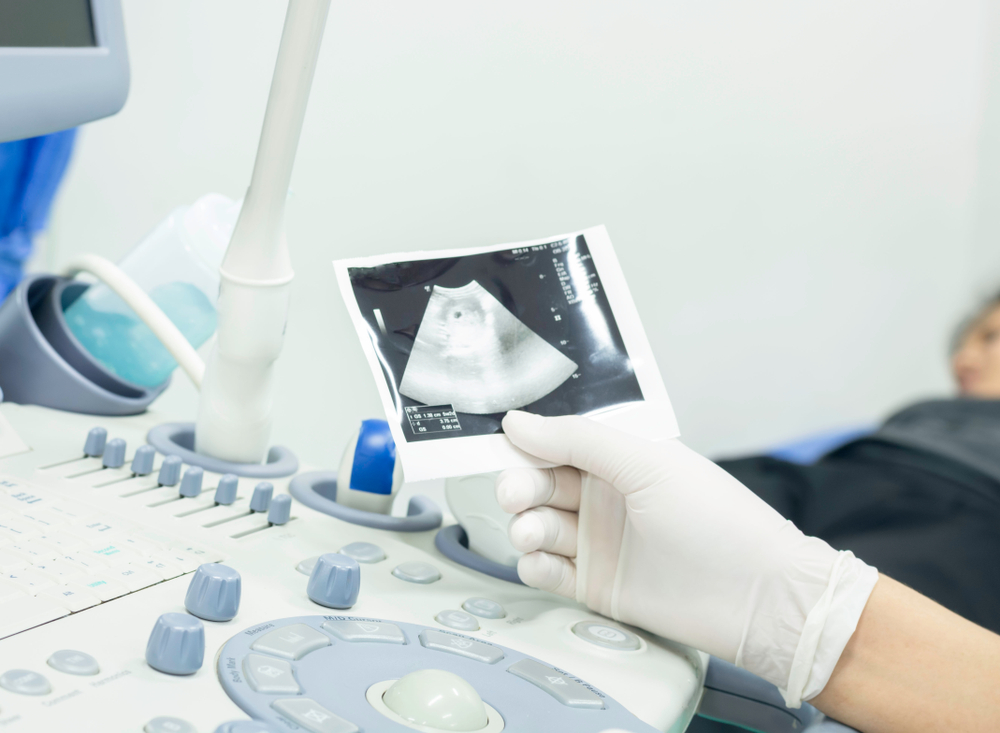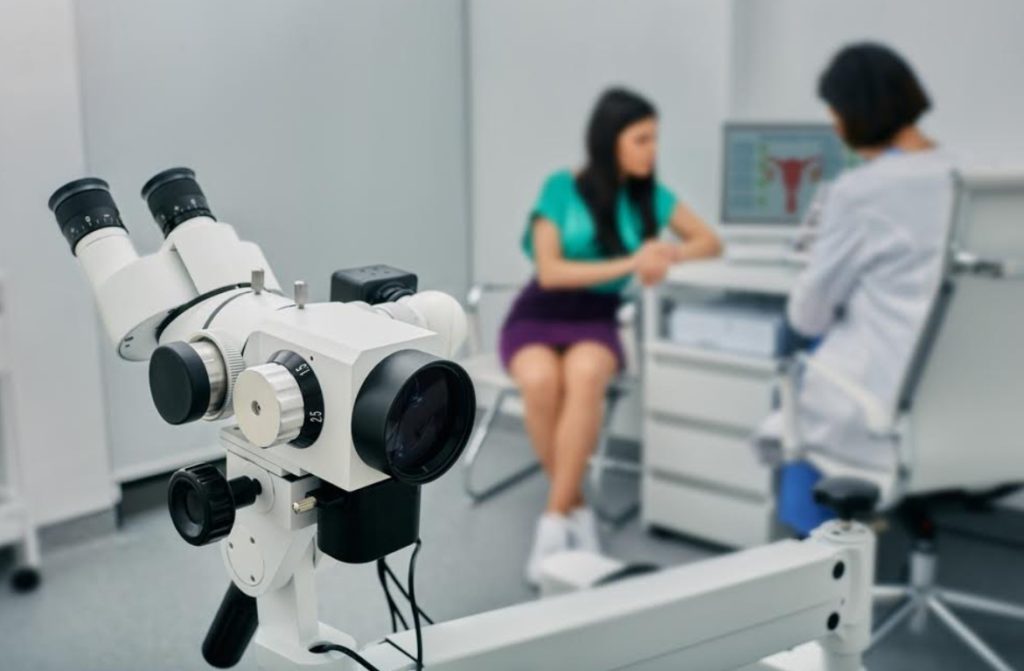Spotting or light bleeding after sex is not uncommon during pregnancy, especially in the first trimester. This is because the cervix becomes more sensitive during pregnancy due to increased blood flow. Also, hormonal changes can also cause the cervix to bleed more easily.
However, it is always important to inform your healthcare provider if you experience any bleeding during pregnancy, including after sex. They may want to examine you to ensure that everything is okay with you and your baby.
In this article, you will find out if spotting after sex is normal, what can cause spotting after pregnancy, and how to prevent and treat spotting after pregnancy.
Is spotting after sex during pregnancy normal?
Spotting after sex, also known as post-coital bleeding, is not always normal and can have several causes. Therefore, it’s important to determine the underlying cause in order to determine whether it’s normal or not.

In some cases, spotting after sex can be normal, especially if it’s a person’s first sexual experience or due to vaginal dryness during intercourse. However, if the spotting or bleeding is persistent or accompanied by pain, discomfort, or other symptoms, it could be a sign of an underlying medical condition that requires attention.
If you experience spotting after sex, it’s important to speak with a healthcare provider to determine the cause. This way, your doctor can map out an appropriate treatment plan. They may perform a pelvic exam, Pap test, or other tests to diagnose the underlying issue.
Can having sex during pregnancy cause spotting?
Sex during pregnancy is generally safe for most women with uncomplicated pregnancies. However, it is possible for sexual activity to cause some vaginal spotting or bleeding during pregnancy, especially in the first trimester.
Spotting after sex during pregnancy can occur because the cervix (the opening to the uterus) is more sensitive and engorged with blood during pregnancy. As a result, even minor trauma to the cervix during sex can cause some bleeding. This is more likely to occur in the first trimester when the cervix is still closed and more sensitive.
If you experience vaginal bleeding or spotting after sex during pregnancy, it’s important to inform your healthcare provider. While spotting after sex is usually not a cause for concern, it’s essential to rule out any underlying medical conditions that may be contributing to the bleeding.
In general, it’s important to talk to your healthcare provider about what activities are safe for you during pregnancy and what to watch out for in terms of warning signs of complications.
Causes of spotting after sex during pregnancy
Spotting after sex during pregnancy can be caused by various factors. Some possible causes include:
Cervical irritation: The cervix, which is the opening to the uterus, can become irritated and bleed during pregnancy due to increased blood flow and sensitivity.
Infection: An infection in the vagina or cervix can cause bleeding after sex during pregnancy. This can include sexually transmitted infections (STIs) or bacterial vaginosis.
Cervical polyp: A cervical polyp is a growth on the cervix that can cause bleeding after sex during pregnancy. These polyps are usually benign and do not pose a risk to the pregnancy.
Placenta previa: Placenta previa is a condition where the placenta partially or completely covers the cervix, causing bleeding. This condition requires medical attention and monitoring, as it can be dangerous for the mother and baby.

Miscarriage: In some cases, bleeding after sex during pregnancy can be a sign of miscarriage. If you experience any other symptoms such as cramping or heavy bleeding, seek medical attention immediately.
Vaginal dryness: If there is not enough vaginal lubrication during sex, it can cause irritation and bleeding.
Cervical or uterine cancer: Bleeding after sex can be a symptom of cervical or uterine cancer.
Trauma or injury: Rough sex or injury to the genital area can cause bleeding.
Hormonal changes: Fluctuations in hormones can cause changes in the thickness and health of vaginal tissue, which can lead to bleeding after sex.
Preventing spotting after sex during pregnancy
Here are some tips on how to prevent spotting after sex:
Use lubrication: Vaginal dryness can cause friction during sex, leading to small tears or cuts in the vaginal tissue. Using a water-based lubricant can help reduce friction and prevent bleeding.
Practice safe sex: Using condoms during sex can help prevent infections that may cause bleeding. Additionally, condoms can help reduce friction during sex, which can prevent vaginal tears.
Communicate with your partner: If you experience pain or discomfort during sex, it’s important to communicate with your partner. They may need to adjust their technique or use more lubrication.
Get regular check-ups: Regular gynecological exams can help detect and treat any abnormalities in the cervix or other parts of the reproductive system that may cause bleeding after sex.

Avoid sex during menstruation: Having sex during your period can increase the risk of bleeding, so it’s best to avoid it during this time.
Seek medical attention: If bleeding after sex persists or is accompanied by other symptoms such as pain or discharge, it’s important to seek medical attention. Your doctor can help determine the underlying cause and recommend the appropriate treatment.
Treatment of spotting after sex during pregnancy
It is always advisable to consult with your healthcare provider if you experience spotting or bleeding during pregnancy, especially after sex. Your healthcare provider may perform a pelvic exam and order an ultrasound to check the health of your pregnancy and rule out any possible complications.
Depending on the cause of the spotting, your healthcare provider may recommend the following treatments:
Rest: Your healthcare provider may advise you to rest and avoid any strenuous activity, including sexual intercourse.
Pelvic rest: This may be recommended if there is a risk of preterm labor or if the spotting is caused by cervical changes. Pelvic rest involves avoiding sexual intercourse, tampons, douching, and anything else that could irritate the cervix.
Medications: If the spotting is caused by an infection or inflammation, your healthcare provider may prescribe antibiotics or anti-inflammatory medication.
Bed rest: In some cases, bed rest may be recommended to prevent further bleeding and ensure the health of the pregnancy.
Conclusion
It is essential to follow your healthcare provider’s advice and attend all follow-up appointments to ensure that you and your baby are healthy. If the bleeding is heavy, accompanied by cramping or abdominal pain, or if you experience a sudden increase in bleeding, seek medical attention immediately.

